
When poet, professor and politician Michael D Higgins was inaugurated as Ireland’s ninth president on November 11 2011 he declared his would be a “presidency of transformation”.
After 14 years in the role, he has remained enormously popular across the country, with many commentators saying his outspoken ways have changed how Irish people view the presidency.
He and wife Sabina have appeared as a duo at many events, and he has previously described her as his “rock”.
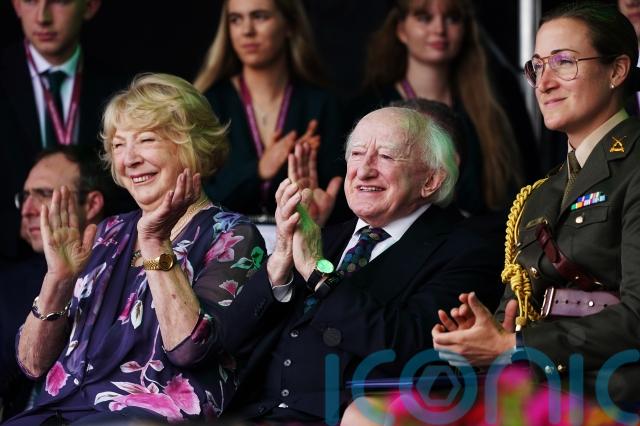
Also supporting his official engagements from the president’s official residence, Aras an Uachtarain, Mr Higgins has had three Bernese Mountain dogs Misneach, Brod and Sioda, who captured the nation’s hearts.
When Brod died in 2023 it triggered what Mr Higgins described as an “outpouring of support”.
His gentle public image inspired ‘Michael Tea Higgins’ tea cosies and children’s books, providing a sharp contrast to many global leaders in an era of increasing political adversity.
Mr Higgins was elected during a turbulent period in recent Irish history, and the economic crisis dominated the start of his presidency.
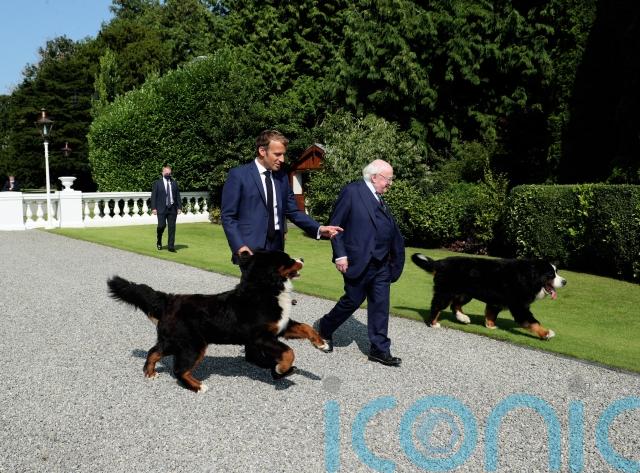
He took on the role in 2011, the first year of the EU-IMF economic bailout programme and when Ireland was experiencing high levels of unemployment fuelling emigration.
In one of his first acts as president, he voluntarily waived almost a quarter of his salary, following a similar pay cut taken by predecessor Mary McAleese after Ireland was hit with a recession.
The country’s financial crash forced him to cut short a 2013 state visit to Italy.
He returned to Ireland in order to sign emergency legislation to liquidate the Irish Bank Resolution Company (IBRC) – the entity formed when Anglo Irish Bank and Irish Nationwide merged.
Austerity measures brought in to mitigate the crash included new water charges, which were ferociously opposed.
President Higgins bore the brunt of demonstrators during a visit to a school in Finglas, Dublin in early 2015, where some of the protesters were filmed shouting abuse at him.
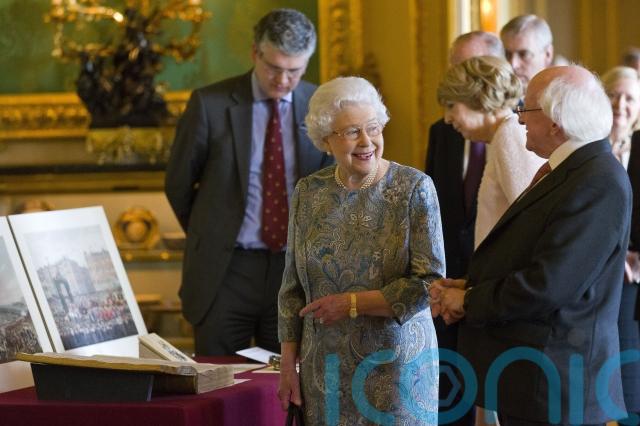
His first term also saw some milestones in Anglo-Irish relations, and in April 2014 he became the first President of Ireland to make a state visit to the United Kingdom, during which he delivered an historic address at Westminster.
Later that day, in his toast during a state banquet hosted by Queen Elizabeth II at Windsor Castle he described the trip as “a very visible sign of the warmth and maturity of the relationship between our two countries”.
However, during the celebrations marking 100 years since the 1916 rising, Mr Higgins pulled out of a civic dinner in Belfast, where he was due to be guest of honour, because of a lack of cross-party support for the occasion.
His spokesperson claimed the decision was made because “he does not want to become embroiled in matters of political controversy”.
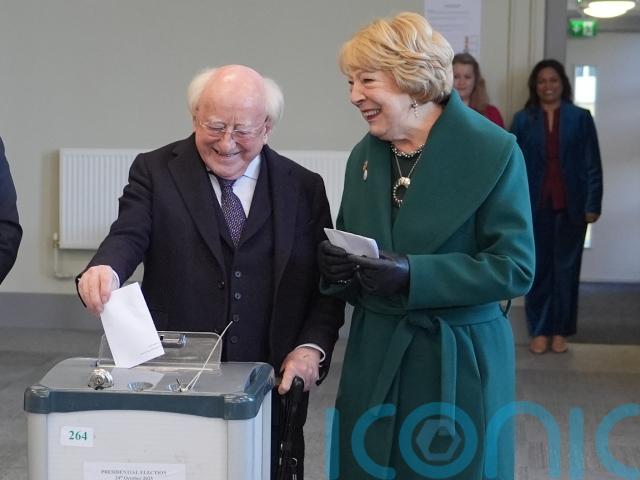
During his presidency Mr Higgins became known for speaking his mind.
He faced criticism in late 2016 for describing Fidel Castro as a “giant among global leaders” in a statement marking the death of the former Cuban president.
Mr Higgins rejected claims he ignored human rights concerns and a statement issued by his spokesperson described the criticism as “unsustainable and unwarranted”.
In 2018, he welcomed Pope Francis to Aras an Uachtarain during the first papal visit to Ireland in 40 years.
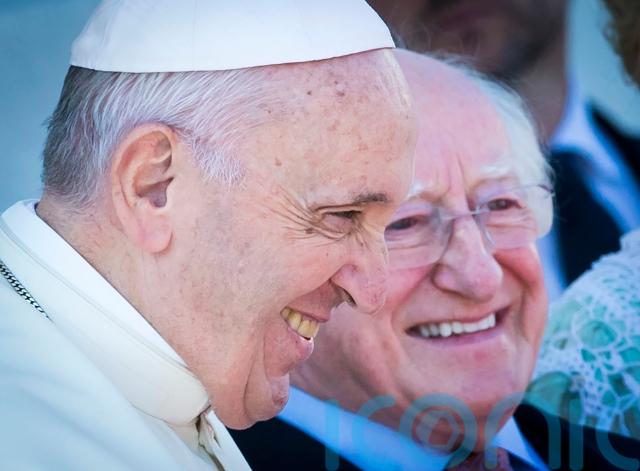
Mr Higgins told the pontiff of the anger felt by those in Ireland who were abused as children by Catholic clerics.
As his first term came to an end in 2018, he announced he would seek a second despite previously saying he would not run again.
Mr Higgins ran as an independent candidate but was backed by Fine Gael, Fianna Fail and Labour, who agreed not to field their own candidates.
He instead faced a Sinn Fein candidate and four independents but won with 55% of the vote.
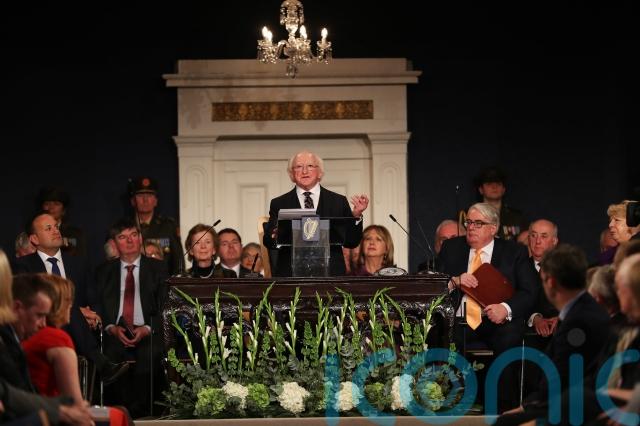
On RTE’s Late Late Show during the Covid-19 pandemic he described the word ‘cocooning’, used to describe a measure to protect the over-70s, as “infantilising”.
In 2021, he wrote to the Oireachtas, raising concerns about the large volume of complex legislation sent to his office which needed to be signed quickly.
It sparked an emergency meeting of Oireachtas committees, and the Taoiseach described the concerns as “legitimate”, claiming the problem had partially been caused by the pandemic.
Later that year, the Government defended the President’s decision not to attend a cross-community service to mark the centenary of the formation of Northern Ireland.
British and Irish political leaders attended the event at St Patrick’s Church of Ireland Cathedral in Armagh, but Mr Higgins declined his invitation because he believed it was not politically neutral.
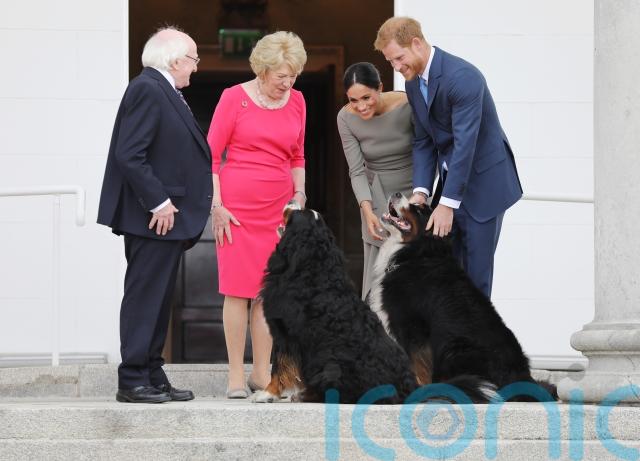
He was championed by the opposition in June 2022 when he described housing in Ireland as “our great, great failure”.
The statement was referenced by Sinn Fein, Labour and People Before Profit during leaders’ questions.
A vocal critic of the war in Gaza, Mr Higgins was criticised several times by Israel’s ambassador to Ireland.
In 2024, he accused the Israeli embassy in Dublin of leaking a letter in which he sent his “best wishes” to the new president of Iran.
The embassy rejected the claim and called the remarks “highly inflammatory and potentially slanderous”.
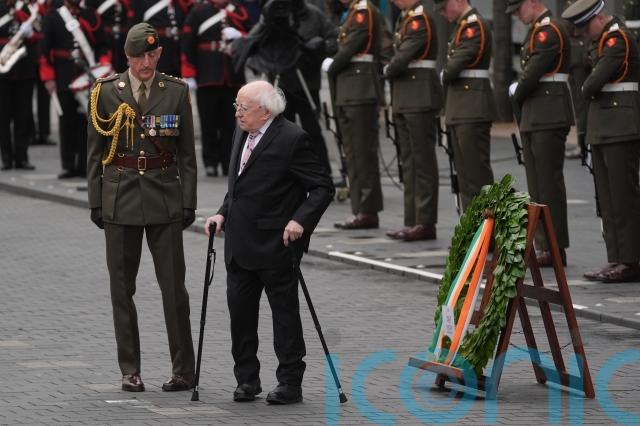
While remaining vocally forceful, Mr Higgins has become visibly more frail.
In February 2024 when he was 82, the President spent over a week in hospital for what was later revealed to be a mild stroke.
He cut back on public appearances for a number of weeks and was later seen in public using two walking sticks.
Subscribe or register today to discover more from DonegalLive.ie
Buy the e-paper of the Donegal Democrat, Donegal People's Press, Donegal Post and Inish Times here for instant access to Donegal's premier news titles.
Keep up with the latest news from Donegal with our daily newsletter featuring the most important stories of the day delivered to your inbox every evening at 5pm.